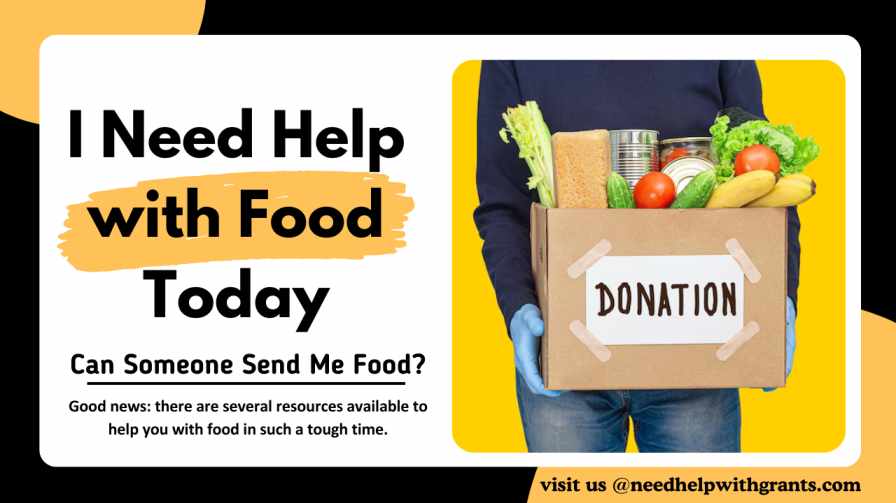Missouri offers several emergency financial assistance options for individuals and families facing financial hardship. The state government, local agencies, and nonprofit organizations offer these programs. Whether you are facing sudden job loss, the risk of eviction, domestic violence, or a medical emergency, the state offers several levels of support.
1. Temporary Assistance for Needy Families (TANF) in Missouri
What It Is:
Missouri’s TANF program, called Temporary Assistance (TA), provides monthly cash benefits to low-income families with children. Its goal is to help households cover living expenses such as food, transportation, clothing, personal hygiene products, utilities, and other essential needs.
Key Features:
- Monthly cash payments on an Electronic Benefit Transfer (EBT) card
- Recipients must participate in work-related activities under the Missouri Work Assistance (MWA) program
- Case management and referrals to employment and training services
Eligibility Requirements:
- You must be a Missouri resident
- U.S. citizen or qualified immigrant
- Must have a dependent child under 18 (or under 19 if still in high school)
- Household income and resources must be below state limits (typically under $1,000 in countable assets)
- Parents or caretakers must engage in work activities
- Drug screening may be required
- Lifetime limit of 45 months of benefits
Benefit Amounts:
Monthly payments vary depending on family size and income. For example:
- 1-person household: ~$120/month
- 3-person household: ~$292/month
- Maximum benefit is limited but may be supplemented by SNAP and Medicaid
How to Apply:
- Online: https://mydss.mo.gov/temporary-assistance
- Phone: Call the Family Support Division at 855-373-4636
- In person: Visit your local Family Support Division (FSD) office
Required Documents:
- Proof of ID (driver’s license, SSN)
- Birth certificates of children
- Proof of income (pay stubs, unemployment)
- Utility bills or rent agreements
- Vehicle title/registration (for resource calculation)
2. Cash Diversion Program (One-Time Emergency Payment)
What It Is:
The Cash Diversion Program provides a lump-sum emergency cash assistance payment in lieu of ongoing TANF benefits. It is designed for families facing a temporary crisis (such as a medical emergency, vehicle repair, or eviction) but who do not want long-term public assistance.
Key Features:
- One-time payment equivalent to up to 3 months of TA benefits
- Available once every 12 months, with a lifetime maximum of 5 payments
- No long-term commitment to the TANF program
Who Qualifies:
- Low-income families who meet TANF eligibility
- Must demonstrate that the cash will prevent or solve a temporary crisis
- Cannot have received regular TA payments recently
How to Apply:
- Same process as Temporary Assistance
- You must request the diversion program when applying
- Be ready to show evidence of the emergency (e.g., eviction notice, medical bills, car repair estimates)
3. Low-Income Home Energy Assistance Program (LIHEAP)
What It Is:
LIHEAP provides emergency grants to cover heating or cooling costs during extreme weather. It operates in two parts:
- Energy Assistance (EA) – a one-time cash benefit for heating or cooling
- Energy Crisis Intervention Program (ECIP) – emergency payments to stop disconnection or restore service
Eligibility:
- Missouri resident
- Household income under 135% of the federal poverty level
- Must pay a heating or cooling bill
- Priority given to seniors, disabled individuals, and households with children under 5
How to Apply:
- Apply online at https://mydss.mo.gov/energy-assistance
- Call 855-373-4636 or contact a Community Action Agency near you
4. Emergency Rental and Housing Assistance Programs
HUD Emergency Solutions Grant (ESG):
Missouri receives funding from HUD through the ESG program, which helps people who are homeless or at risk of becoming homeless.
Services include:
- One-time rental and utility payment assistance
- Security deposit or first month’s rent
- Emergency shelter and rapid rehousing
- Case management and legal services
How to Apply:
- Apply through local Continuum of Care (CoC) providers
- Contact the Missouri Housing Development Commission (MHDC) at https://mhdc.com
Missouri State Assistance for Housing Relief (SAFHR):
This program was created to help tenants and landlords affected by COVID-19, but has since expanded its support in various forms:
- Rent and utility payment assistance
- Mortgage payment or reinstatement aid
- Landlord participation encouraged
Website: https://safhrforhomeowners.com
5. Nonprofit and Faith-Based Emergency Assistance
Several Missouri organizations are offering emergency assistance with cash, food, clothing, and housing:
A. Salvation Army Missouri Division
- Rent and utility assistance
- Hotel vouchers during homelessness
- Emergency food and clothing
- Prescription medication assistance
Website: https://centralusa.salvationarmy.org/mokan/
B. Catholic Charities of Missouri
- One-time financial aid for rent, utilities, or medical bills
- Case management and counseling services
Website: https://www.ccstl.org
C. Community Action Agencies
- Serve every county in Missouri
- Offer employment support, financial counseling, emergency grants
Find your local agency: https://www.communityaction.org/find-an-agency/
D. Family Promise
- Emergency shelter and rapid rehousing for families
- Limited cash support for transportation, rent, and food
Website: https://familypromise.org
6. Other Resources for Emergency Cash
| Program/Resource | Type of Help | How to Access |
|---|---|---|
| 211 Missouri | Referrals to all services | Call 2-1-1 or visit 211helps.org |
| Missouri Work Assistance (MWA) | Job placement and work support | mydss.mo.gov |
| Missouri Department of Social Services | General benefit programs | mydss.mo.gov |
| Local Churches (e.g. Lutheran, Baptist, UMC) | Rent, utility, food, cash help | Call or visit in person |
7. Tips for Applying and Getting Help
- Apply early: Funds are limited and distributed on a first-come, first-served basis.
- Have your documents ready: ID, proof of income, utility bills, a rental agreement, and a Social Security number are often required.
- Use 211: This is the best place to start in Missouri to find local assistance programs.
- Combine programs: Many people use TANF, LIHEAP, and support from local charities to stabilize their finances.
- Apply for case management: Many agencies offer ongoing support and guidance to help you navigate the crisis in the long term.
Final Thoughts
Missouri’s emergency financial assistance system is designed to address short-term crises while promoting long-term stability. Whether you’re facing a financial emergency due to job loss, eviction, utility disconnection, or another crisis, the combination of state assistance programs, federal funding, and support from local nonprofits can help you recover and move forward.
If you’re unsure where to begin, calling 2-1-1 or applying through mydss.mo.gov is the fastest way to start.


